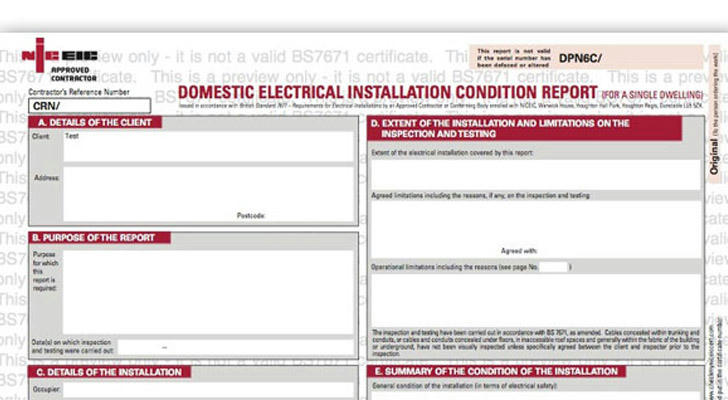Master High-Paying Skills At Zero Cost: Free Electrician Courses In The Uk, Change Your Career Starting Today!
Imagine a chance to master electrician skills without paying tuition fees, and open up a path to a high-paying, high-demand career - in the UK, this is no longer just a dream. A number of government-funded programs and charity projects in the UK are offering free electrician courses to those who want to change career direction, upgrade skills or enter the electrical industry. These courses not only cover training from basic knowledge to professional certification, but also provide comprehensive support for eligible students, so that more people can realize the dream of stable employment.

I. The following are several main types of levels commonly seen in the UK electrician profession:
1. Basic electrician courses
These courses are designed for beginners to provide basic knowledge of electrician work and help students master the basic skills of electrical installation. Course content usually includes electrical principles, tool use, safe operation, wiring systems, etc.
Suitable for: Students with no electrician experience.
Typical courses: Level 1 Electrical Installation, covering basic electrical technology and safety regulations.
2. Intermediate electrician courses
Intermediate courses are designed to provide students with more in-depth electrical knowledge and skills, and are usually suitable for students who have a certain foundation in electrical work or have completed basic courses. This type of course prepares students to obtain nationally recognized qualifications such as NVQ Level 2/3.
Course content: Including electrical system design, installation, fault diagnosis, etc.
Qualification certification: City & Guilds Level 2 or Level 3 Electrical Installation.
3. Advanced electrician courses
These courses are aimed at experienced electricians to help them improve their skills and obtain higher-level qualifications. Advanced courses usually involve complex electrical systems, equipment maintenance, high-voltage electrical operation and other areas.
Suitable for: Experienced electricians seeking to develop in a specialised area.
Typical courses: NVQ Level 4/5 Electrical Engineering, City & Guilds 2391 (Testing and Inspection).
II. How to apply for free electrician training opportunities in the UK
In the UK, many government programs, charities and corporate sponsored projects offer free or subsidized electrician training courses. These courses not only cover basic electrical knowledge, but also provide practical opportunities to provide graduates with the necessary skills to become qualified electricians.
1. Government-supported projects
The UK government provides free electrician training through programs such as Apprenticeships: https://www.skillsforcareers.education.gov.uk/your-training-options. Apprenticeships are a form of training that combines work and learning, where trainees can gain practical experience on the job while completing classroom learning. These courses are usually sponsored by companies and trainees can receive wages during their training. This type of program not only provides a cost-free learning opportunity for young people, but also provides a pathway for adults to re-enter the workforce.
2. Local training centers and community colleges
Many local training centers and community colleges offer free or partially funded electrician courses. These courses are funded by local governments or charities and are designed to help unemployed people, low-income people, or those who wish to retrain to acquire practical skills. For example , LONDON SOUTH EAST COLLEGES offers free electrician training: https://nationalcareers.service.gov.uk/find-a-course
These courses often have flexible study arrangements, suitable for adults with family or work responsibilities. This means that students can attend the course according to their own schedule, and can even complete some of the theoretical part of the course through online learning.
3. Benefit support scheme
For unemployed people or individuals receiving government benefits, there are also special programs that provide them with free electrician training. For example, the UK's "Jobcentre Plus": https://www.gov.uk/guidance/free-courses-for-jobs often provides referrals and funding for electrician training for the unemployed. In some cases, the government also helps trainees pay for transportation and tool costs.
These welfare support programs are designed to allow the unemployed to re-enter the labor market and ensure that they have the skills needed in the market. As a profession with high demand, electricians naturally become the focus of these support programs.

III. Content of electrician training courses
The content of free electrician courses usually includes the following aspects:
1.Basic electrical theory: Students will learn basic electrical principles, power calculations, Ohm's law and other knowledge.
2.Safe operation: The most important thing in electrician work is safety, so the course will explain in depth how to comply with safety standards and regulations to avoid accidents.
3.Wiring and installation technology: Students will learn how to properly install and connect electrical equipment, including wiring for residential and commercial electrical systems.
4.Equipment maintenance and troubleshooting: In the course, students will learn how to diagnose and repair various electrical problems to ensure the normal operation of the equipment.
5.Regulations and Standards: Understanding the relevant laws and safety standards for the UK electrical industry is a must for every qualified electrician.
IV. Long-term career opportunities for electrician courses
After completing the free electrician training, students will have the opportunity to enter an industry with high job security. Electricians can find work in a variety of fields such as construction companies, manufacturing, the energy sector, and even independent contractors. The demand for electricians is not limited to large cities, and there are also a large number of job opportunities in rural areas and small towns. Many electrician positions also offer flexible working hours, allowing freelancers to run their businesses as self-employed.
In addition, with the rise of the renewable energy industry, the employment opportunities for electricians will be further expanded. After completing basic electrician training, students can also further improve themselves through additional courses and enter these emerging fields.
V. Conclusion
The free electrician training courses in the UK provide valuable opportunities for those who want to enter skilled trades. Whether through government-supported apprenticeship programs or funded courses through local training institutions, students are able to obtain high-quality training at zero cost and enter a high-demand industry. For individuals who desire high-paying, stable jobs, electrician training is not only an opportunity for career transformation, but also a solid step towards the future.
